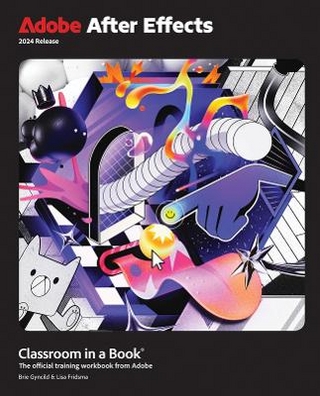
The Gig Economy
Routledge (Verlag)
978-0-367-68622-2 (ISBN)
From rideshare drivers in Los Angeles to domestic workers in Delhi, from sex work to podcasting, this book draws together research that examines the gig economy's exploitation of workers and their resistance. Employing critical theoretical perspectives and methodologies in a variety of national contexts, contributors consider the roles that media, policy, culture, and history, as well as gender, race, and ethnicity play in forging working conditions in the 'gig economy'. Contributors examine the complex and historical relationships between media and gig work integral to capitalism with the aim of exposing and, ultimately, ending exploitation.
This book will appeal to students and scholars examining questions of technology, media, and labor across media and communication studies, information studies, and labor studies as well as activists, journalists, and policymakers.
Brian Dolber is Assistant Professor of Communication at California State University San Marcos. He is the author of Media and Culture in the U.S. Jewish Labor Movement: Sweating for Democracy in the Interwar Era (2017). He is also the author of several journal articles published in venues such as Communication, Culture and Critique, Communication Theory, and Democratic Communiqué, and book chapters. His ongoing research focuses on the gig economy, particularly the organizing methods and media strategies of Rideshare Drivers United in Los Angeles. Michelle Rodino-Colocino is Associate Professor of Media Studies in the Donald P. Bellisario College of Communications at Penn State University. Her research, teaching, activism, and creative work span feminist media and critical cultural studies, with special interest in labor, new media, and social movements. Her scholarly articles have been published in journals such as Communication and Critical/Cultural Studies; Communication, Culture, and Critique; Critical Studies in Media Communications; Feminist Media Studies; New Media & Society; and Women’s Studies in Communication, among others. Chenjerai Kumanyika is a researcher, journalist, and artist who works as an Assistant Professor in Rutgers University’s Department of Journalism and Media Studies. His research and teaching focus on the intersections of social justice and emerging media in the cultural and creative industries. He has written about these issues in journals such as Popular Music & Society; Popular Communication; and Technology, Pedagogy and Education, and The Routledge Companion to Advertising and Promotional Culture. Todd Wolfson is associate professor in the Department of Journalism and Media Studies at Rutgers University. His research focuses on the convergence of technology, inequality and social change. Todd is author of Digital Rebellion: The Birth of the Cyber Left (2014) and co-editor of The Great Refusal: Herbert Marcuse and Contemporary Social Movements (2017) as well as over a dozen peer-reviewed articles. He is currently working on a book focused on new forms of worker organizing in the gig economy. Todd is co-director of the Media, Inequality & Chance Center (MIC), a partnership between University of Pennsylvania and Rutgers University.
Introduction: The Gig Economy: Workers and Media in the Age of Convergence Part 2: History: We Were Always Gig Workers 1. Behind the Wheel and in the Streets: Technological Transformation, Exit, and Voice in the New York City Taxi Industry 2. More than a Gig?: Ridehailing in Los Angeles County 3. Care in the Platform Economy: Interrogating the Digital Organisation of Domestic Work in India 4. Sex Work/Gig Work: A Feminist Analysis of Precarious Domina Labor in the Gig Economy Part 3: Ideology: Thinking Like a Gig Economist 5. “The Future Demands we All become Prolific Artists”: Cultural Ideals of Gig Work in Popular Management Literature 6. “Uber for Radio?” Professionalism and Production Cultures in Podcasting 7. Good People “Belong Anywhere”: Airbnb’s Emerging Neofascism 8. “Uber” University and Labor Recomposition: Notes on (Dis)Organized Academia Part 4: Media: Negotiating the Gig Economy 9. “Viene cuando viene, no es gran cantidad de dinero”: Opacity, Precarity, and the Unwaged Labor of Latina Audiobook Narrators 10. Liquid Assets: Camming and Cashing in on Desire in the Digital Age 11. This is Gig Leisure: Games, Gamification, and Gig Labor Part 5: Struggles: Organizing in the Gig Economy 12. Platform Organizing: Tech Worker Struggles and Digital Tools for Labor Movements 13. Competition, Collaboration and Combination: Differences in Attitudes to Collective Organization Among Offline and Online Platform Workers 14. Uprooting Uber: From “Data Fracking” to Data Commons 15. Precarity Beyond the Gig: From University Halls to Tech Campuses 16. The Cycle of Struggle: Food Platform Strikes in the UK 2016-18 Part 6: Conclusion: We Are All Gig Workers
| Erscheinungsdatum | 02.06.2021 |
|---|---|
| Zusatzinfo | 2 Tables, black and white; 3 Line drawings, black and white; 3 Illustrations, black and white |
| Verlagsort | London |
| Sprache | englisch |
| Maße | 152 x 229 mm |
| Gewicht | 160 g |
| Themenwelt | Kunst / Musik / Theater |
| Geisteswissenschaften ► Geschichte | |
| Informatik ► Grafik / Design ► Film- / Video-Bearbeitung | |
| Sozialwissenschaften ► Kommunikation / Medien ► Medienwissenschaft | |
| ISBN-10 | 0-367-68622-8 / 0367686228 |
| ISBN-13 | 978-0-367-68622-2 / 9780367686222 |
| Zustand | Neuware |
| Haben Sie eine Frage zum Produkt? |
aus dem Bereich


